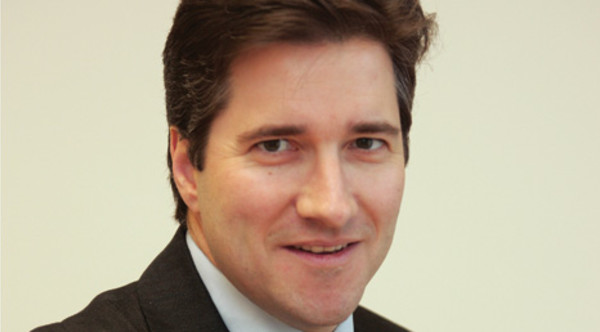

Fund managers with long-standing investments in gold were rewarded during October's market turbulence.
Sebastian Lyon's £4.1bn Troy Trojan fund has gold bullion as its largest single investment - a stake valued at about £210m - and he has long owned gold because he said its performance tended to move in the opposite direction to equities, and so offer diversification.
Outlining why he was buying more gold for the fund, Mr Lyon said the unconventional monetary policies pursued by central banks in recent years were likely to have "unintended consequences" for markets.
He added that higher bond yields would prove a "challenging" environment for most asset classes but gold would perform well because it was "proven" to move in the opposite direction to equities, so when a period of market turbulence happens, gold would perform well.
Mr Lyons said that with quantitative easing having pushed asset prices upwards, it was "reasonable" to expect the reversal of the policy would lead to asset prices falling. He said gold would act as "essential insurance" in such a scenario.
The investment in gold has started to aide performance, with the Troy Trojan fund being the third best performer from 173 funds in the IA Flexible Investment sector over the past three months, having been ranked in the bottom 25 per cent of funds in the sector over the previous one, three and five years.
Meanwhile Alastair Mundy, who runs the £1bn Temple Bar investment trust, is another who has long been invested in gold and he expected interest rates to rise because of much higher inflation, and expected gold to perform well in those conditions.
Mr Mundy’s fund has performed much better over the past month to than the average trust in the AIC UK All Companies sector, losing 2.9 per cent, compared with 4.6 per cent for the average.
That ranks the trust among the top 25 per cent in its sector over the past 30 days, compared with a rank in the bottom 50 per cent over one and five years.
Agathe Demarais, principal economist at the Economist Intelligence Unit, said: "By keeping long-term interest rates extremely low through quantitative easing programmes, major western central banks have forced investors to look elsewhere for attractive returns, pushing up the prices of bonds, stocks and property.
"The effects on financial markets of withdrawing huge amounts of monetary stimulus are so far not well understood.
"US inflation and interest rates could rise faster than is currently built into financial market pricing, leading to falls in a wide range of asset prices that have been supported by years of extraordinary monetary policy support. Financial markets could also prove more sensitive to rises in interest rates than we currently assume."
But Simon Edelsten, who runs the £108m Artemis Global Select fund, said he didn't regard gold as an investment and was holding cash instead.
He said: "Some investors see gold as a stable unit of value when governments or central banks ‘print money’. This argument was interesting when QE was in full flood and gold was worth buying then, but since QE peaked it does nothing but fall in dollar terms.
"We have held cash when stock appeared expensive and have been buying growth stocks as they get thrown out on corrections like this. The results season particularly in the US has been strong and although growth will be slower next year than this especially trade with the disputes, good companies still grow well."
Tommy Garvey, who is part of the asset allocation committee at GMO said gold would never enter his thoughts as an investment.
He said: "We think the value of an investment is measured by the future returns it can achieve, not by how much you hope to be able to persuade someone else to pay for it in future."
Jonathan Davis, who runs Jonathan Davis Wealth Management in Hertford, said he expected inflation and interest rates to be much higher in the years ahead, and he was investing in commodities as a way to profit from this trend.
david.thorpe@ft.com




